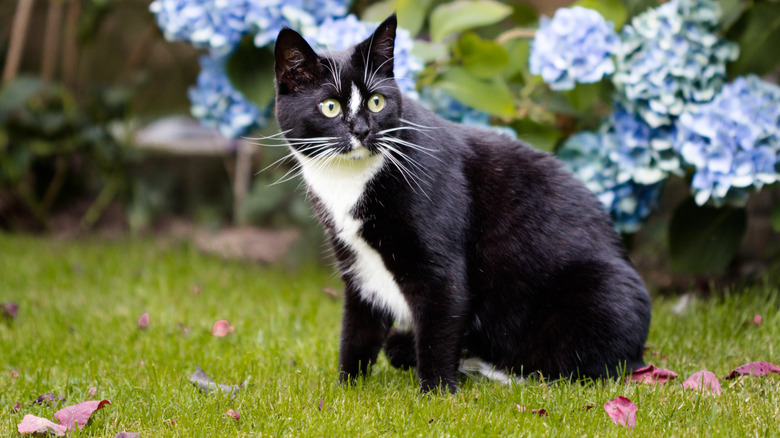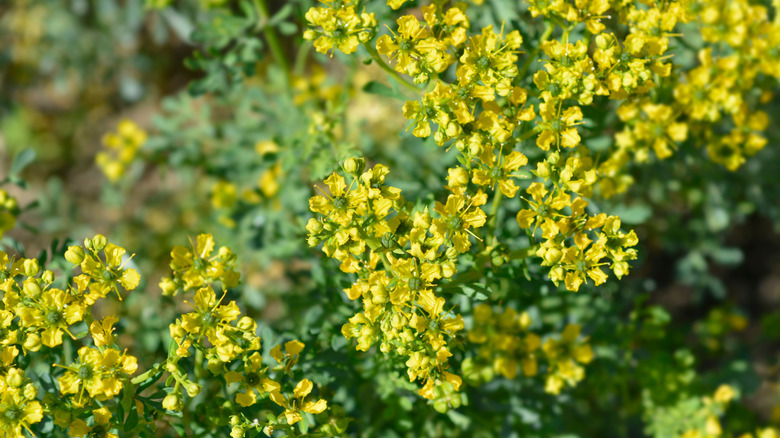This Pungent Herb May Keep Cats Out Of Your Garden, But Is It Worth The Downsides?
Growing and maintaining a garden that is aesthetically appealing, a source of food for your family, and beneficial to birds and pollinating species can be highly rewarding. As such, it can be particularly disheartening when a cat causes problems. Whether it is your own pet, a neighbor's, or perhaps even a feral cat, this can be an aggravating and potentially dangerous situation. Cats not only hunt birds in home gardens, but they can also ruin your plants and possibly spread diseases through feces left behind in the soil. If you have repeated cat encounters, you may have considered trying deterring them with plants. Common rue (Ruta graveolens) is one option. However, any evidence supporting rue as an effective cat repellent is largely anecdotal. Adding rue is not guaranteed to work, and it may possibly cause more harm than good due to its toxicity levels.
Rue is an evergreen-like herbal plant that belongs to the Rutaceae, or citrus, family. It's known for its ornamental yellow flowers that can attract varieties of butterflies, as well as pretty bluish-green foliage. Rue can grow between 2 and 3 feet in width and height, while also producing a strong bitter yet spicy smell along the way. It's the latter quality that is thought to potentially help deter cats.
Downsides rue for deterring cats from your garden and alternatives to consider
The biggest downsides to growing rue revolve around their toxicity. In fact, rue is considered to pose a medium poison severity threat to humans. First, its toxic leaves can cause contact dermatitis when handling them. Accidental ingestion of the leaves can even be fatal in large amounts, with possible symptoms of rue poisoning including severe stomach pain, vomiting, and confusion. For these reasons, anyone who does plan on adding rue to their gardens is strongly urged to use caution and wear long gloves while handling this plant. You should also consider keeping pets and children away from rue.
Due to the high toxic potential of rue, planting this herb may not be worth the risk. This doesn't mean you have to surrender your garden to stray cats that you want to get rid of, though. In fact, there are other ways to keep outdoor cats out of your garden beds that may be far safer than rue, though the evidence surrounding these is still largely anecdotal. For example, other types of scents cats purportedly dislike include lemon thyme (Thymus citriodorus), which is generally not toxic to cats, but can cause discomfort if large amounts are consumed. Instead of using plants, you can also try adding a rough-textured mulch in your garden, which may be off-putting to cats since they usually prefer softer textures like litter or sand. Other possible cat-deterring methods include removing any debris, sealing off potential places to hide, and using motion-activated sprinklers.

